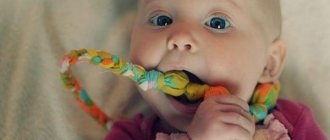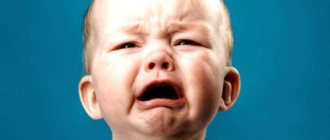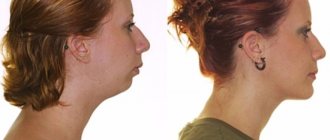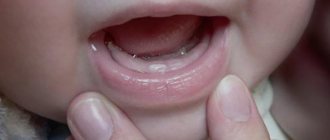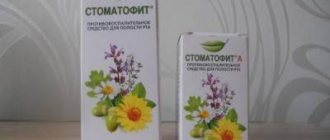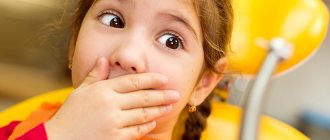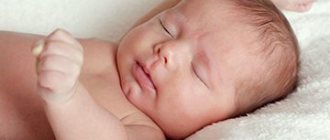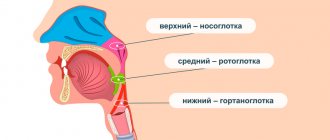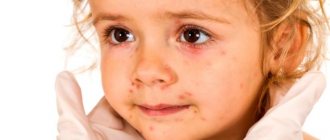Cough is a protective reaction of the immune system to the entry of various allergens and pathogens into the body. It is not always a sign of any disease, especially in early childhood. In order to understand whether cough treatment in newborns and infants is required or whether lifestyle adjustments are simply necessary, you need to understand the likely causes of the condition.
Specialists from the SM-Doctor clinic will tell you what to do if a baby has a dry or wet cough, when to urgently call a doctor, and what home measures you can take to help your child without harming his health.
Causes of cough in children of the first years of life
The most likely culprits of cough in children are ARVI - acute respiratory viral infections (influenza, adenovirus, etc.). They affect the upper or lower respiratory tract, causing mucus production. The body, trying to get rid of mucus, launches a defense mechanism in the form of coughing.
Other likely causes may be allergic reactions, primary bacterial infections, such as whooping cough, tuberculosis, or secondary bacterial complications of ARVI, such as pneumonia, bronchitis, bronchiolitis.
The culprits of dry and wet cough in an infant are sometimes:
- too dry and warm air in the room where the baby is;
- dust;
- strong, overpowering odors, such as laundry detergent or fabric softener, air freshener, perfume, scented candles and oils;
- posterior rhinitis is a disease in which mucus drains down the back wall of the throat, causing a reflex cough, especially when lying down;
- increased salivation;
- regurgitation;
- general or local hypothermia of the body.
In some cases, a persistent cough may indicate pathologies of the cardiovascular system, reflux disease, and foreign matter entering the respiratory tract.
Cause of cold
Colds are caused by many respiratory viruses. Healthy children have about 6-8 colds in the first year of life. This is because there are so many viruses that cause colds. With each new cold, the child’s body develops immunity to this virus. The influenza virus causes a more severe cold with fever and muscle aches. A cold is usually a mild illness. However, with a cold, 5-10% of babies experience complications. Most often it is an ear or sinus infection that is caused by bacteria.
When you urgently need a doctor
In the vast majority of cases, infants encounter viral infections that do not require specific treatment and go away on their own with symptomatic care.
You should be wary and seek advice from a pediatrician if your child has:
- signs of respiratory failure: shortness of breath, rapid, shallow breathing, pale skin;
- the appearance of blood in the sputum;
- clearly visible wheezing when breathing;
- paroxysmal cough, when the baby does not have time to catch his breath between shocks, turns blue, and experiences a lack of air;
- combination of cough with high fever, rash, swollen lymph nodes;
- weakness, lethargy, refusal to eat and drink, lack of response to your name, loud noises and favorite toys.
A condition that experts call false croup or stenosing laryngotracheitis deserves special attention. This is an acute viral respiratory disease that can lead to respiratory arrest in young children. Its main symptoms are:
- barking, croaking cough;
- hoarseness of voice;
- night coughing attacks.
In some cases, this condition develops swelling of the larynx, which is why the child cannot clear his throat fully and begins to choke. At the first signs of false croup, you need to call an ambulance as quickly as possible or take the baby yourself to the emergency room of the nearest hospital.
Can a cold be dangerous?
The most serious complication in infants is breathing problems. Respiratory failure is the medical name for difficulty breathing. The following are symptoms that should prompt you to immediately consult a doctor or call an ambulance:
- Difficulty taking every breath or shortness of breath
- Difficulty breathing so much that the baby can barely cry
- The spaces between the ribs contract with each breath
- Breathing becomes noisy (eg, wheezing)
- Breathing occurs much faster than usual
- Your baby's lips or face turn blue
- Wheezing (purring or whistling)
- Breathing occurs much faster than usual
- Swallowing problems and drooling
Diagnostics
At the appointment, the pediatrician carefully examines the baby, conducts initial diagnostics and, if necessary, prescribes laboratory or instrumental tests.
In order to determine the possible cause of the cough and assess the current condition of the baby, the following is carried out:
- auscultation (listening) of the lungs;
- laboratory blood tests with a detailed leukocyte formula;
- various allergy tests if indicated;
- chest x-ray;
- ultrasound examination of the heart.
Next, the specialist, assessing the results of tests and examinations, establishes an accurate diagnosis and prescribes appropriate therapy.
Why is there blood mixed in?
The admixture of blood in a child’s purulent snot especially frightens parents. In this situation, the mucus turns brown. There are many reasons for this phenomenon. Most often it is observed due to the development of changes in the mucous membrane of the paranasal sinus. There are also the following factors causing the violation:
- formation of a boil in the nasal passage;
- excessively intense nose blowing;
- malignant neoplasms in the nasal cavity.
Only a doctor can determine exactly what caused purulent discharge with blood from the nose in a child after an examination.
Treatment of cough in newborns and infants
For young children, adequate therapy should be carried out, based on objective information obtained during the examination and collection of anamnestic data. Treatment of cough in infants should only be carried out by qualified pediatric specialists: pediatricians, infectious disease specialists, allergists.
Depending on the indications, the treatment package may include:
- antipyretics;
- antibacterial drugs for confirmed bacterial infection;
- medications that thin sputum;
- antitussives that block reflex cough;
- antihistamines and hormonal drugs.
A competent doctor will also give parents individual recommendations on establishing an optimal microclimate in the child’s room, proper nutrition, and daily routine. The correct regimen for a baby is the basis for a quick recovery from any disease.
How to help infants at home with a cough
The most important rule is never to give children any medications without consulting a doctor and not to practice traditional medicine techniques, even if they were recommended by a beloved grandmother, an experienced neighbor, or a mother of five children from an online forum.
The main task of parents in the treatment of dry or wet cough is general support of the body. What does that require?
- Keep the room where the baby is at no more than 22 degrees Celsius with a humidity of at least 40%. The drier the air, the more time and effort the body needs to moisturize it. Inhaling cool, humidified air facilitates the functioning of the respiratory system, helping them quickly cope with mucus and remove it out.
- Give the baby plenty of water. The optimal drink for newborns and infants is mother's milk, but with artificial feeding or pathological fluid loss, clean water can and should be given. Liquid is necessary to maintain the rheology (fluidity) of sputum: the thinner the mucus, the easier it is for the child to cough it up.
- Periodically change the baby's position in the crib and keep him in an upright position more often. Such measures contribute to accelerated mucus discharge and improved nasal breathing.
- Walk. Walking in the fresh air is an excellent cure for coughing children. The main thing is that the baby feels satisfactory, does not have a fever and does not suffer from diseases that require strict bed rest. Cool, fresh air, entering the child’s respiratory tract on the street, condenses and moisturizes the mucus, thereby accelerating the process of mucus discharge and overall recovery. Walking is especially useful for children with whooping cough, laryngotracheitis, bronchitis and other viral or bacterial lesions of the respiratory system (in consultation with a doctor!)
- Do not force him to eat if the baby categorically refuses. During any illness, all the body’s forces are aimed at fighting the “invader,” and digestion takes time and reduces the intensity of the immune system’s attacks on the infection.
What you should definitely not do:
- give infants both antitussives and expectorants/mucolytics without a doctor’s prescription;
- experiment with methods of folk practices, even proven by the experience of the older generation;
- leave the street if the child develops a wet cough after a dry cough (this means that the air has fulfilled its task - it has moistened the sputum, and now it is easier for the baby to cough);
- wrap up, overheat the baby.
In what other cases should you call a doctor if you have a cold?
- You think your child has a life-threatening situation
- Non-severe breathing problems that do not go away after clearing the nose.
- High-risk child (eg, with chronic lung disease)
- Weak immune system: sickle cell disease, HIV, cancer, organ transplant, oral steroid use.
- Temperature above 40°C
- Fever in a baby less than 12 weeks old.
- Ear pain or ear discharge
- Yellow or green pus from the eyes
- Fever lasts more than 3 days
- Fever returns after being gone for more than 24 hours
- Fever lasts more than 3 days or rises above 40 °C (104 °F).
- Nasal discharge continues for more than 14 days.
- Cough lasts more than 3 weeks
Prevention
It will not be possible to protect a child from all diseases, but it is possible to reduce the risk of developing serious pathologies and prepare the body to face infections. To do this you need:
- carry out preventive vaccination of babies from birth against diseases such as tuberculosis, whooping cough, diphtheria;
- devote time to hardening the kids;
- walk a lot with your child in the fresh air;
- regularly ventilate and humidify the room with the newborn;
- Don’t be overzealous when dressing your baby for a walk;
- ensure adequate physical development through massage, gymnastics, swimming, etc.
- promptly contact specialists for the treatment of any diseases.
You can learn more about the types of children’s cough, measures of assistance and treatment options at a personal meeting with the doctors of the SM-Doctor clinic. Sign up for a consultation by phone or on the website, ask questions using the online form to get the information you are interested in.
Why does a baby have a runny nose?
The most common causes of a runny nose in a newborn are:
- Rare wet cleaning of the room and accumulation of dust.
- Excessive amount of carpets and soft toys in which allergens accumulate.
- Hypothermia of the baby. This includes constantly opening the window and long walks outside.
- The air is too dry (especially in winter when the heating is on).
- Treatment with medications. The child's body reacts to synthetic drugs, showing a protective reaction.
- Teething.
Question answer
Mom insists on using mustard plasters, but the baby is only 2 months old. Can he be given mustard plasters or cough jars?
In no case. They are contraindicated for children, since such measures can lead to burns and mechanical injuries to the skin, and unpredictable allergic reactions.
We are vaccinated with DPT, but the child still coughs, like whooping cough. What to do?
Yes, preventive vaccination does not guarantee that the disease is excluded, but it reduces the risk of serious complications many times, hundreds of times. There are special treatment protocols for whooping cough, so you should first contact your attending pediatrician for laboratory tests. It is quite possible that the suspicions will be in vain.
The difference between a physiological runny nose and cold rhinitis
During the first three months, the newborn adapts to the environment and learns to inhale air through the nose. The glands of the nasopharynx produce a lot of mucus. Its excess is a physiological runny nose. Small discharge without other symptoms is considered normal; it does not worsen the child’s well-being, does not require treatment and goes away on its own within 90 days.
Symptoms of a cold runny nose are:
- The baby often refuses to feed. While eating, he sniffles and whistles.
- Feels hot. The thermometer shows a temperature above 36.6°C.
- The nose does not breathe, air is inhaled through the mouth.
- Sleep patterns are disrupted.
- Sometimes the eyes turn red and watery eyes occur.
- The child sneezes.
- Moodiness and lethargy appear.
It is these signs that indicate the baby’s condition is deteriorating. In this case, medical attention is required. It is worth noting that it is difficult for mothers to distinguish by eye whether a baby has a physiological or pathological runny nose, so the child should be shown to a pediatrician or ENT doctor.
First symptoms of the disease
It is often difficult to discover that an infant is sick, because he cannot tell what is bothering him. However, in the case of a runny nose, there are quite obvious external symptoms that will help adults identify the disease in a timely manner and begin treatment.
Your baby has a runny nose if:
- he began to sneeze frequently, and his eyes began to water;
- you notice that the child has stopped breathing freely - this indicates nasal congestion. This symptom should not be ignored, because nasal congestion and, as a result, difficulty breathing at night reduces the quality of sleep and can lead to hypoxia - oxygen starvation of the cells and tissues of a growing child's body;
- mucus discharges from the nostrils. If you pay attention to the color and nature of the discharge, you can make an assumption about the nature of the disease even before consulting a doctor: clear mucus indicates a virus that has entered the body, and a thick white, yellowish or greenish secretion indicates the bacterial nature of the disease;
- in the case of infectious rhinitis, babies under one year of age may have a fever, and then treatment of a runny nose should not occur without the participation of a pediatrician.
